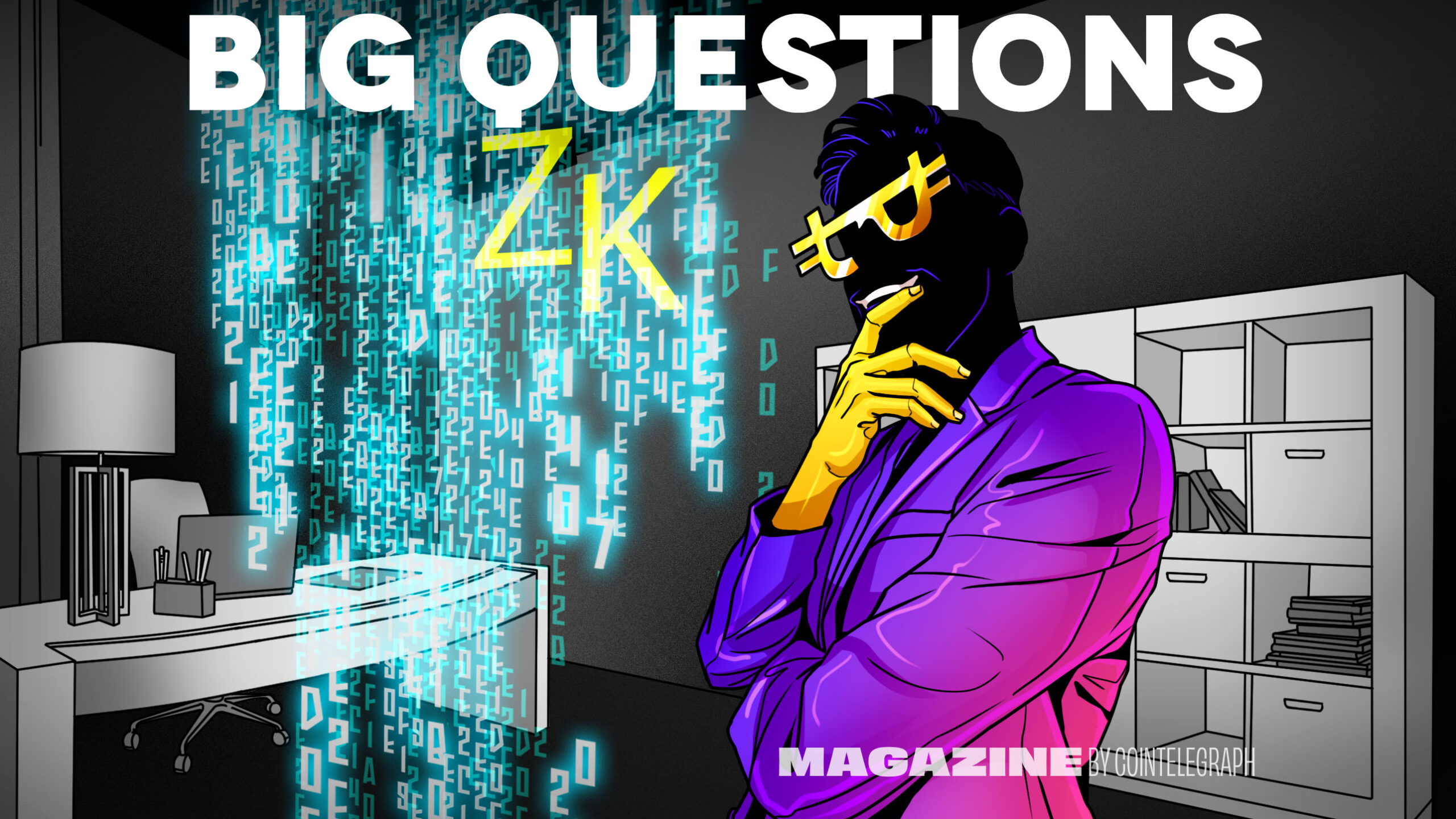From privacy coins to shiny iris-scanning orbs, zero-knowledge proofs have become synonymous with crypto, scalability and privacy. In
From privacy coins to shiny iris-scanning orbs, zero-knowledge proofs have become synonymous with crypto, scalability and privacy.
In 2022, investors gave over $700 million in funding to companies pushing the envelope with zero-knowledge proofs. This year, ZK-proofs has arguably become one of the biggest blockchain trends, with several major Ethereum scaling protocols hitting mainnet.
ZK-proofs are a cryptographic protocol that allows one party to prove the truth of a statement to another party without sharing any of the statement’s contents.
An often-cited example is proving to a bartender that you’re old enough to drink without showing your ID or even telling them your birthdate.
Well, it seems that Satoshi Nakamoto, the pseudonymous creator of Bitcoin, once found the technology pretty interesting.
A better version of Bitcoin
In August 2010, the user “Red” on the online forum Bitcointalk asked whether there could be a way to improve the privacy of Bitcoin transactions.
“One of the things that bugs me about bitcoin is that the entire history of transactions is completely public,” the forum-goer said. Another member piped in, suggesting that zero-knowledge proofs could be the solution.
“This is a very interesting topic,” replied Nakamoto.
“If a solution was found, a much better, easier, more convenient implementation of Bitcoin would be possible.”
However, Nakamoto wasn’t convinced the tech could get around the “double-spending” problem — a fundamental flaw that exists in all digital cash protocols where a bad actor could spend the same digital tokens more than once.
“It’s the need to check for the absence of double-spends that requires global knowledge of all transactions,” said Nakamoto.

“It’s hard to think of how to apply zero-knowledge-proofs in this case. We’re trying to prove the absence of something, which seems to require knowing about all and checking that the something isn’t included,” he argued.
Years later, someone cracks the code
Little did Nakamoto know that the cypherpunks would eventually find a way to solve the problem.
Privacy-focused cryptocurrency Zcash was launched in October 2016 by Electric Coin — a firm made up of computer scientists from the formative years of Bitcoin. Zcash was built by modifying Bitcoin’s original source code.
It was also the first time zero-knowledge proofs were used in a real peer-to-peer cryptocurrency, allowing users to hide or shield the crypto wallet address sending or receiving funds.
The world finally knows that famed whistleblower Edward Snowden was one of the pivotal members of the Zcash Ceremony, where six people combined portions of the project’s private key to launch it in 2016. https://t.co/Lgag6bGA0n
— Cointelegraph (@Cointelegraph) April 28, 2022
The founding scientist of Zcash, Eli Ben-Sasson, would then go on to found StarkWare, a company known today for using zero-knowledge proofs to scale Ethereum through rollups.
Ben-Sasson tells Magazine that the early enthusiasm from Bitcoin core developers for ZK-proofs played a “pivotal role” in his eventual co-founding of StarkWare.
“The Bitcoin 2013 conference in San Jose marked my Eureka moment.”
“Mike Hearn, a then-Bitcoin developer and one of the earliest Bitcoin adopters, went as far as to declare my talk on ZK-proofs as the most crucial of the event due to its potential impact on the future of blockchain.”
“It was there that I realized the transformative potential of the Validity Proofs I was developing,” says Ben-Sasson.
Fast forward to today, Bitcoin itself now stands ready to enter the world of ZK-proofs.
Read also
Features
Powers On… Why aren’t more law schools teaching blockchain, DeFi and NFTs?
Features
Airdrops: Building communities or building problems?
ZeroSync, a nonprofit founded by three computer scientists (and sponsored by StarkWare), is developing the world’s first ZK light client for Bitcoin.
“Long-term, we hope to bring mass scalability to Bitcoin using STARK Proofs,” said Robin Linus, co-founder of ZeroSync.
Linus said that ZeroSync has designed and is currently implementing a layer-2 protocol that could allow Bitcoin to process more than 100 transactions per second while bringing privacy properties to Bitcoin.
“This could be a major feat in bringing Bitcoin toward the scalability it needs.”
So what would Nakamoto think?
“It’s evident from…
cointelegraph.com

COMMENTS